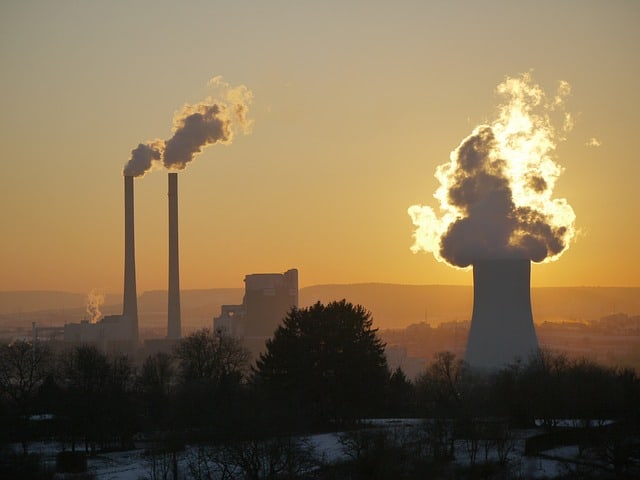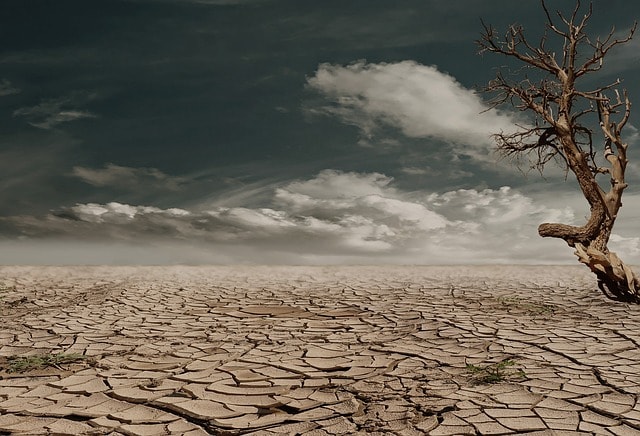10 Easy Ways to Protect Yourself From Air Pollution

Nine in every 10 people in the world breathe air that violates World Health Organization guidelines. Inhaling polluted air can cause multiple health problems including respiratory conditions, lung cancer, heart disease and stroke.
Air pollution has also been linked to damaging brain development in children, pneumonia, emphysema and chronic bronchitis. Exposure to high levels of particulate matter in the air decreases life expectancy.
In a study published by the renowned Lancet journal, a shocking 9 million premature deaths across the world in 2015 were linked to pollution, and the majority of fatalities came from air pollution.
Air pollution is not, however, only an outdoors problem. The air we breathe inside our homes can also be polluted and cause a host of ailments.
While bringing down pollution levels needs interventions at the policy level and by civil society has a whole, there are steps you can take to mitigate the effects of air pollution.
1. Wear a mask while stepping out
Face masks don’t offer absolute protection from polluted air but are useful to wear if the air is particularly bad on any given day. While the simplest masks can block larger particles including dust, industrial masks are considered to be the most effective. Some masks may have disposable respirators and are identified as N-95 or P-100. These are capable of warding off harmful airborne bacteria. If nothing else, make sure your mouth and nose are covered when the pollution levels hit severe.
2. Buy air purifying plants
Some plants such as Ivy, Dracaenas, Aloe Vera, Areca palms and Spider Plant are known to purify the indoor air and decrease air pollution. It helps to have them in homes and offices. While buying plants is a cost-effective way to control indoors pollution, make sure that the plants themselves are not toxic when consumed. Pets have been known to snack on plants around the home, which can be life threatening.
3. Clean your car air
While starting your car in the morning, roll down the window and let the air circulate. Then run the car AC in its indoor circulation mode. This reduces the PM 2.5 levels inside the vehicle.
4. Use air quality apps
Staying informed about the air quality will help you make important decisions about protecting yourself from pollution. Luckily, there are some cool free apps which provide you with round-the-clock and useful information about the pollution levels and air quality in the city you live in. Plume, Air Visual (link) and AirNow are among the most popular free apps that give you the air quality rating in real time.
5. Eat healthy
A healthy diet that includes plenty of fruits, vegetables, nuts, beans and healthy fats may offer protection against some harmful effects of air pollution. Make sure you are getting your required intake of vitamins so that you develop stronger immunity. Herbal green tea can also be beneficial in fighting some of the adverse effects.
6. Be smart about exercise
While walking, jogging and other forms of exercise are vital to build stronger immunity and strengthen you cardiovascular system, you don’t want to breathe polluted air while taking a walk in the park. So avoid blocks that have a busy traffic flow. Instead head to a park which is away from the vehicular congestion. An indoor gym is also something you can consider on days the air is bad.
7. Quit smoking
Smoking has been linked to lung diseases and lung cancer; increased risk of stroke and heart attack; cancer of the mouth, larynx, nasal sinus and tongue; and premature wrinkling of the skin among several other illnesses. Besides being bad for you, cigarette smoke has several adverse effects on your families health if they are inhaling the smoke passively. Smoking is a key contributor to indoor pollution. Quit it.
8. Use non-toxic or natural cleaning products
Most regular cleaning products comprise chemicals that release toxic pollutants and gases into your home. It makes sense to either create your own cleaning products using basic items such as lemon, baking soda, etc., or buy organic and natural cleaning products. Since there are many products that claim to be natural these days, look out for trusted labels on the products so that you know they’ve been certified natural or organic by a reliable third-party auditor.
9. Use an air purifier
It’s well recognized now that indoor air can also be quite dirty and long-term exposure to such air can make you more susceptible to heart disease, respiratory problems, lowered immunity and even cancer. In any case if the air outside is bad, shutting yourself indoors doesn’t go far enough in keeping the air inside clean. The best thing you can do for yourself and your family’s long-term health is to invest in a good quality air purifier. You can find some good impartial advice on air purifiers over at freshairguide.
10. Good ventilation
Smoke, harmful bacteria and mold tend to gather in bathrooms and kitchens, making these spaces breeding grounds for toxins. So you need to ensure that these rooms have proper ventilation. An exhaust fan is helpful if your kitchen does not have a window near the stove area.






